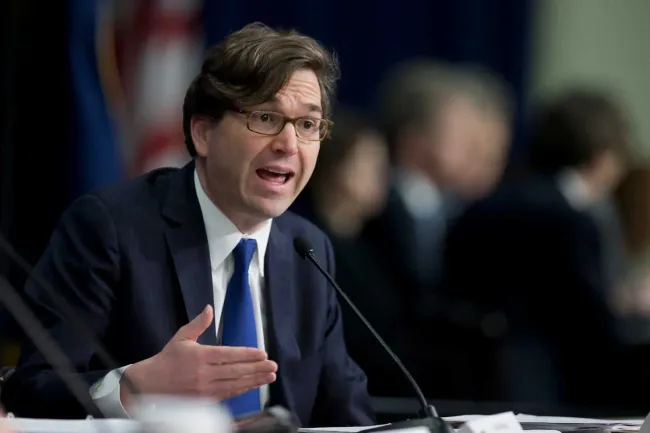Economists in the Doghouse: Can They Dig Themselves Out After Years of Failed Predictions and Elitist Jargon?
Let’s face it: economists have had a rough decade. Once the trusted experts shaping policies on taxes, healthcare, and trade, they’ve now been sidelined—ignored by politicians and dismissed by the public.
Flawed forecasts, overconfidence, and an overreliance on jargon have left the field scrambling to prove its relevance. The big question: can economists regain their influence, or are they destined for irrelevance?
The Fall from Grace
Economists have long championed policies like free trade, immigration, and carbon taxes, presenting them as essential to prosperity. But here’s the problem: no one’s listening anymore. Former President Donald Trump slapped tariffs on nearly everything, famously calling them “the most beautiful word in the dictionary.” Meanwhile, President Joe Biden retained most of those tariffs and even blocked a Japanese company from acquiring U.S. Steel—ignoring his own economic advisors in the process.
It’s not just trade where economists have been sidelined. Warnings about ballooning deficits and the economic benefits of immigration have been brushed aside by both parties. Economists are left wondering if their expertise still matters. As Aaron Sojourner, an economist who served under both Obama and Trump, bluntly put it: “I do wonder all the time if it matters.”
Forecasting Fiascoes
Economists’ shaky track record on predictions hasn’t helped their case. From the 2008 financial crash to the recent inflation surge, their forecasts have often missed the mark. A study by the St. Louis Federal Reserve revealed that predictions for GDP growth, unemployment, and inflation are frequently off by significant margins. GDP forecasts, for example, have been wrong by a full percentage point—a glaring error in economic terms.
The overconfidence problem only compounds the issue. Research from UC Berkeley’s Haas School of Business found that economists are correct just 23% of the time, yet they report 53% confidence in their predictions. This gap between perception and reality isn’t just wrong—it’s outright delusional.
The Jargon Problem
Economists’ reliance on technical language further alienates their audience. Terms like “transition costs” and “market externalities” may sound impressive, but they fail to resonate with the policymakers and public they aim to influence. When people don’t understand what you’re saying, they’re unlikely to take you seriously—no matter how insightful your arguments might be.
Jason Furman, a former Obama advisor, summed it up well: “Economists need to do a better job of understanding the problems people care about, developing innovative approaches, and being transparent about uncertainty.” In other words: stop speaking like a textbook and start speaking like a human.
A Glimmer of Hope?
Despite their challenges, economists still have a chance to turn things around. The field has undergone a “credibility revolution,” embracing data-driven, experimental research that reflects the messy realities of economies. For instance, studies on minimum wage increases have shown their impacts to be far less catastrophic than traditional models predicted—a victory for evidence over ideology.
Some economists are also focusing on state and local policies, where their expertise may have more immediate impact. Additionally, long-term research projects could yield insights that genuinely matter in the real world.
The Bottom Line
Economists stand at a crossroads. To reclaim their influence, they must own their past mistakes, shed their arrogance, and communicate in plain, accessible language. As Karen Dynan, a former Treasury official, noted: “It matters that the profession has failed society in a couple of ways. When policy goes awry, it’s important for people to own up to what happened.”
The clock is ticking. Economists must adapt, reconnect with the public, and prove their relevance—or risk fading into obscurity. The choice is theirs.
